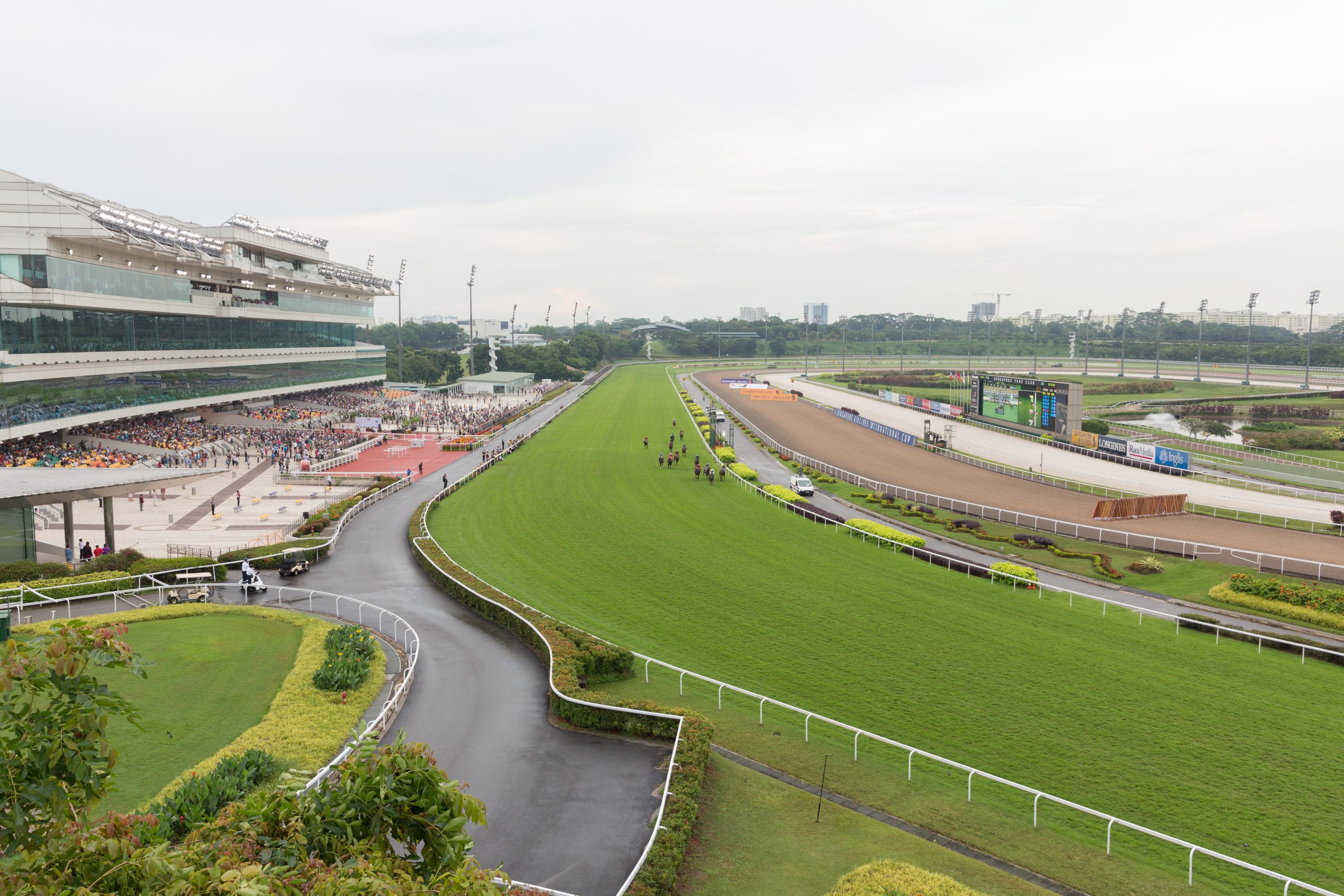Gray’s Kranji days are over as Kiwi walks out on Singapore

Last of the ‘originals’ to return to New Zealand after 24 years training in Asia
Accomplished trainer Stephen Gray has announced he will quit Singaporean racing imminently after walking out of a meeting with government officials last month feeling dismayed.
His Singapore training peers, which included fellow Kiwi expatriate Donna Logan, also left with a sense of disillusionment and disappointment that their careers at Kranji, and the racing industry as a whole, seemingly meant so little to the island state’s government.
Gray, who had been making plans for months to leave Singapore racing and for his return to New Zealand, had resolved to end his 24-year tenure prior to the October 5 finale, telling his wife Bridget following the meeting that he couldn’t take it any longer and that they were leaving as soon as possible.
On Monday, Gray officially informed the Singapore Turf Club that he would be vacating his stables at the end of April, closing the door on his decorated career training in Asia.
Having informed his clients on Sunday evening, Gray experienced instant relief upon sending the letter to the Turf Club with his focus now turning to his final weeks based in the Lion City and his subsequent return to the Central Districts of New Zealand where he will once again train horses.
The Singapore government and Turf Club made the shock announcement last June that racing would cease on October 5 this year, bringing an end to the sport in the nation after 180 years, and Gray is the latest participant to quit ahead of time, joining the likes of fellow trainers Michael Clements and Shane Baertschiger.
Gray revealed that a recent meeting between members of Singapore’s Association of Racehorse Trainers and a representative of the government’s finance minister was the last straw.

The trainers’ body had been advocating for compensation and assistance for themselves, their owners and their stable staff, something the Turf Club had initially promised and, so far, scarcely delivered when announcing the devastating news of the Singapore racing industry’s demise during a snap 15-minute meeting held on June 5 last year.
“Give her dues, she met with us and gave us a good hour and a half of her time. I think there were about 15 or 16 trainers there,” Gray told ANZ Bloodstock News on Monday of the recent talks with a representative of the Singapore Finance Ministry.
We all got up and spoke about different things and when I got up I had never seen so many emotional people in a room
“We all got up and spoke about different things and when I got up I had never seen so many emotional people in a room.
“I came home and had a breakdown because I just couldn’t believe what’s happened, what we’re going through and why they’re doing this, so I said to Bridget, ‘I’ve got to get out of here, I can’t cope, I’ve gotta go’, so that’s when we made the decision to really push and get out.
“It’s been damn hard.”
Along with his now wife Bridget, Gray was granted the last available block of stables at the purpose-built racecourse at Kranji, moving into them in April 2000, just a month after the official opening of the new track that was constructed to replace Bukit Timah.
At the time, he was the youngest Singapore-based trainer, aged 35, during a period in which his rivals included Malcolm Thwaites, Charles Leck, the late Laurie Laxon, Donald Baertschiger, Mick Kent Snr and Pat Busuttin.
“To be the last of the original trainers to get stables at a young age was a massive thrill and challenge,” Gray said.
“To train here is tough. I believe it’s the hardest [Asian jurisdiction] as you have to run a business as well.
“There are a limited number of Group races, so to train Group winners in those early days is a test of your abilities and to be the longest-serving trainer is something I am proud of.”
Among his ensuing 825 wins in Singapore, six have been at local Group 1 level, with Gray tasting success twice in the Singapore Derby, firstly in 2007 with Lim’s Prestige (Pins) and then again in 2021 with Hard Too Think (All Too Hard) who also won the Queen Elizabeth II Cup in the same year.
He also won back-to-back Lion City Cups with Lim’s Cruiser (Casino Prince) in 2017 and 2018 and a Singapore Gold Cup in 2016 with Bahana (Elusive City).
Despite the sad end to their time in Singapore, Gray described the more than two decades in Asia as “life-changing” for he and Bridget. Both their children, James, 22, and Katie, 20, were ,also born in Singapore.
“The last five to ten years have been disappointing, particularly since Covid, but the first ten to 15 years were amazing. You were proud to be a Singapore trainer,” said Gray.
“As a young guy, you work hard, you look at your opposition and try to be like them. It’s no different to Australia or Hong Kong or wherever you are.
“We all do it because we love the horse and we love the challenge and financially it was good to us [up until the past four years].
“When I look back to those early years, you wonder where it all went wrong.”
Gray’s last race meeting at Kranji will be on April 27, although it is uncertain whether he will have a runner on that day.
Four of his 20 horses were transferred to other Singapore trainers on Monday, six will be either sold or retired to Malaysia come April 18, while stable stars Hard Too Think and Silent Is Gold (Star Turn) will enter quarantine on Thursday.
They will be sent to New Zealand in time to rejoin Gray’s stable in New Zealand’s Central Districts.
Gray, who will turn 60 in November, will train from a private Palmerston North facility he and his father Kevin bought in 2006 that was originally established by Wayne Herbert.
Active at the yearling sales in Australia and New Zealand so far this year, with the intention of also buying at the Inglis Australian Easter Yearling Sale, Gray aims to have up to 40 horses in work at his property near Awapuni racecourse.
He said the injection of funding and renewed enthusiasm for the New Zealand racing industry as a result of Entain taking over the TAB had also prompted the decision after exploring options in Australia.
When I look back to those early years, you wonder where it all went wrong
“I’ve still got a lot to give, I’m still passionate about racing and I have some owner support. There’s one new owner and a couple of old owners who are giving me support with a few nice horses to go back to,” Gray said.
“I think everyone can see what’s happening in the New Zealand industry, which is great for everybody, including Australia, so to be around Bridget’s family and my parents, who are still in good health … I think it’s the right move.”
Gray trained 411 winners in partnership with his father from 1987 until obtaining a trainer’s permit in Singapore at the turn of the century.
His departure follows Clements, who quit last September, fed up with the poor treatment of Singapore’s racing participants by the Turf Club’s officials, then in December expatriate Australian Baertschiger, the son of Donald Baertschiger, also chose to finish up early, closing his stable late last year before moving back to Melbourne.
Fellow Australian trainers Tim Fitzsimmons and Dan Meagher are yet to disclose where they will head once Kranji closes, but the former has been exploring his options in Western Australia and Victoria.
Meagher, son of former Singapore trainer John Meagher, initially said he’d return to Brisbane and train alongside his brother Chris.
However, neighbouring Malaysia, and specifically the Selangor Turf Club in Kuala Lumpur, is also a potential option for Meagher who trains for the prominent Lim stable.
British-born trainer James Peters, who has been licensed since early 2016, told ANZ Bloodstock News in February that he was unlikely to open a stable in another jurisdiction once racing ends in Singapore.
The Singapore Gold Cup will be run for the 100th and final time at Kranji’s last meeting on October 5.
In justifying racing’s closure in Singapore, the government claims it wants to repurpose the 120-hectare site for residential housing development and blames declining community interest and wagering on the sport.
The pandemic also hindered racing in Singapore, with antiquated betting technology and rules exacerbating the issues of a declining wagering revenue stream for the Turf Club.
“We went from two days a week down to one and all our feature races were taken away,” Gray said.
“Bridget and I had 60 horses in work and we had a thriving business and I thought the next five to ten years will be good for us. We’d built up a good ownership base and all those owners at that time, when you get cut to one meeting a week, they drifted off a bit and got rid of horses.
“They then didn’t replace horses because it was doom and gloom.”
He added: “Singapore was the gun place to be [in the early 2000s], we were well looked after in those days.
“As time’s gone on, you wonder what the hell has gone wrong, don’t you, the last ten years?”



